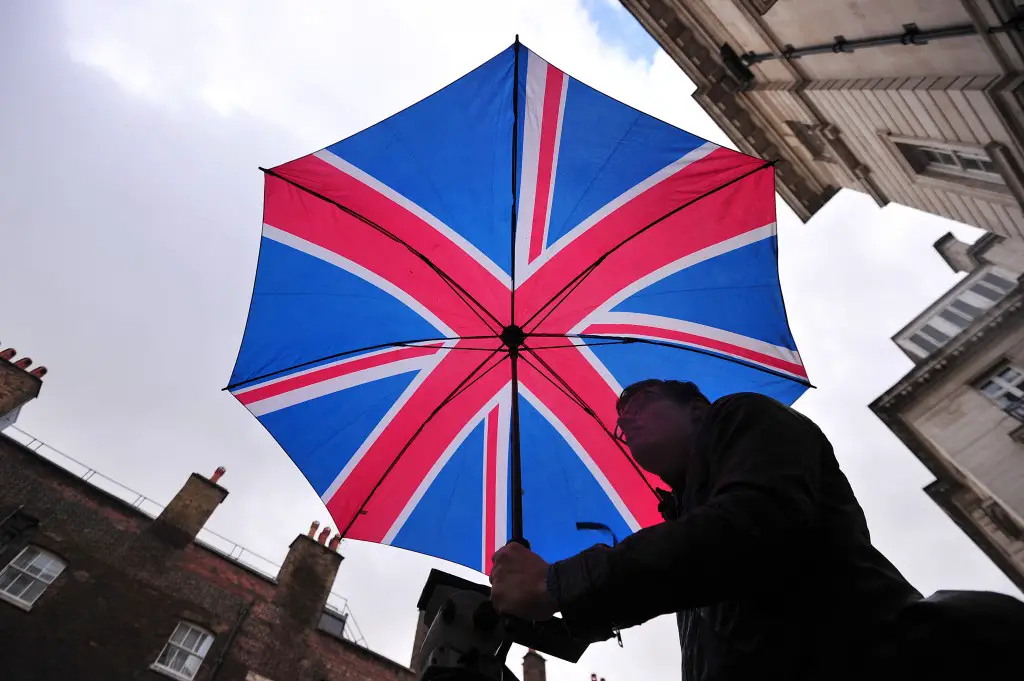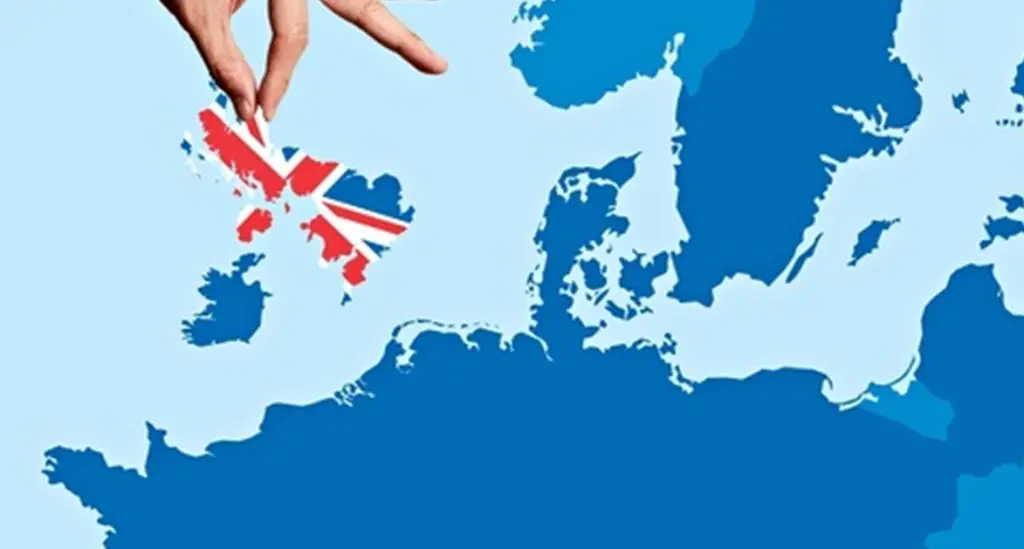Have you ever noticed how the English language is full of fun, cute, contracted neologisms? Take, for example, noob, a shortened, meme-ified version of “newbie.” There’s also “chilax,” “staycation” and countless others.
So naturally, when I heard the term “Brexit” for the first time, I assumed it was a similarly informal term, and jokingly speculated that it referred to the way a stereotypical British person left a room in awkward circumstances. Maybe she spilled some tea and subsequently dashed away to avoid having to clean the mess up. Or maybe he was forced to leave a friend’s birthday party because he didn’t have the common decency to wear a bowtie and top hat.
As it turns out, the word “Brexit” itself is borderline facetious. While in fact a contraction of “British exit,” the term references a country that is reconsidering its relationship with a powerful bloc of nations that surrounds it on three sides. On June 23rd, the United Kingdom will hold a national referendum on whether or not it should remain a part of the European Union.
The much-anticipated referendum has already rekindled elements of British nationalism, spawned blatant xenophobia and extremism and left a legislative official dead. Such a vote is of international importance, serving as a worldwide beta test of whether humanity is ready to further the progress of globalism and tolerance. This vote could have a broad-reaching impact on political alliances and economic endeavors, potentially even restructuring the United Kingdom.
Allow me to rewind a bit. Okay, make that a lot.
In 1957, five and a half (the “half” being West Germany) modern European nations signed The Treaty of Rome in an effort to homogenize elements of taxation and trade between them. Collectively calling themselves the “European Economic Community,” or EEC, they eventually roped in several other nations, including the UK.
After Germany reunified in 1989, there was a renewed push for collectivizing political and economic interests in Europe, led by France and Germany. However, tension between the UK and France from the beginning—partly because of the prospect that the Brits would allow those pesky Americans to exert influence over the Community—only grew, and Britain’s history of nationalism started to resurface in the rhetoric of certain politicians.
Even when the Community was expanded into the European Union in 1993, this opposition to collectivism was manifested in Britain’s refusal to adopt the Euro as its currency, its unilateralist techniques during the Iraq War and other policy differences. Also, if anyone is naturally skeptical of high-speed historical encapsulation, feel free to fact-check me.
Beyond such policy disagreements, many British people viewed the EU as an oppressive and authoritative force.
The Maastricht Treaty of 1992 in particular was viewed as usurping Britain’s autarky, and Britain even avoided conforming to the social policies laid out in the treaty until 1997. More recently, Prime Minister David Cameron neglected a treaty that aimed to more tightly regulate the EU’s Common Market. Eventually, Cameron promised to hold a referendum on Britain’s affiliation with the EU and, three years later, it’s finally happening.
In summary, Britain differs from the more progressive European countries on a number of policy issues, is resistant to sacrificing elements of their autonomous government to Brussels (essentially where the EU is headquartered) and perhaps its imperial reflexes kick in when others start telling them what to do.
In addition, the potential economic impact of leaving the EU is a bit of a mixed bag, with different socio-economic classes and industries bound to be affected very differently. Still, many Brits believe they are better off without the EU’s regulations.
Despite these apparent reasons for leaving the EU, about half of registered UK voters, including David Cameron, as well as a certain greasy-haired American college student want Britain to remain a part of the EU. There are a lot of reasons.
 First of all, the EU makes intracontinental trade easier for many businesses if all of those businesses are operating under the same regulations (even if some of them find the regulations a bit restricting). Others think that it would hurt Britain’s international relations to separate from the EU, creating necessities for new treaties and negotiations that could potentially drag on for years.
First of all, the EU makes intracontinental trade easier for many businesses if all of those businesses are operating under the same regulations (even if some of them find the regulations a bit restricting). Others think that it would hurt Britain’s international relations to separate from the EU, creating necessities for new treaties and negotiations that could potentially drag on for years.
But perhaps the main reason Britain should remain a part of the EU can be summed up in one word: xenophobia.
The campaign to separate the UK from the EU has quickly devolved into attempting to justify the discrimination of foreigners. And I’m not just talking about how members of the EU’s governing bodies are seen as holding ideological views that conflict with Great Britain’s.
Instead, a main complaint of EU policies that has come to dominate the Brexit campaign is that the EU allows people to travel as they please among its member countries. This free travel in turn plays into fears of droves of international migrants fleeing war and persecution and pouring into the UK at a staggering rate, increasing a potential for terrorism and undermining job security. Sound familiar?
That’s right. Just when you thought I had forgotten about the good ol’ U.S. of A.
As I implied toward the beginning of the article, Britain choosing to remain in the EU is a co-requisite for increasing tolerance and diversity elsewhere. The United States has terrorism issues of its own, as corroborated by the recent Orlando shootings, but no number of violent, tragic incidents is enough reason to accuse whole ethnic groups, religions or even foreigners in general of these attacks. And senseless fear mongering doesn’t solve any problems. Instilling anxiety in the public is only a method of political manipulation. In the case of Britain, such manipulation could be used to sever the ties between a nation and a powerful political alliance of over 500 million people, all under the guise of mere economic challenges.
It’s true that just because the Brexit campaign has been advocated by xenophobes doesn’t mean there aren’t valid fiscal reasons to support it. That said, Britain may still be better off if it is able to cooperatively negotiate the accommodation of international migrants from within the EU, as opposed to fully isolating itself from immigrants and the opportunities they bring. Such opportunities include cultural enrichment, stimulation of economic growth and oftentimes youth in countries that have high numbers of elderly people that can’t contribute to the economy.
With the rise of organizations like ISIS, the world has ripped itself apart arguing about how to establish national security and eradicate terrorism. I believe that substantive solutions to these grave issues will come from collaboration and not isolation. Even if you can’t vote in Britain’s referendum on June 23rd—and even if you’ve never been to Europe—Islamophobia, prejudice, hatred and fear can cross the Atlantic Ocean. In fact, they already have.
The world is increasingly globalized. Britain’s vote on Thursday could be a bellwether for how other western countries respond to terrorism threats, immigration crises and other events that tend to bring out the worst in people.
Still, I’m going to remain optimistic about the outcome of Britain’s impending national referendum. After all, love, respect, tolerance and unity can bridge oceans as well.













